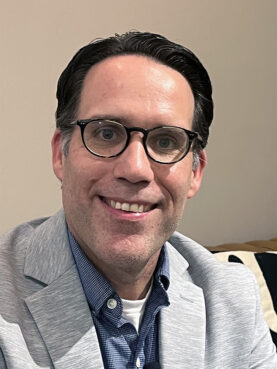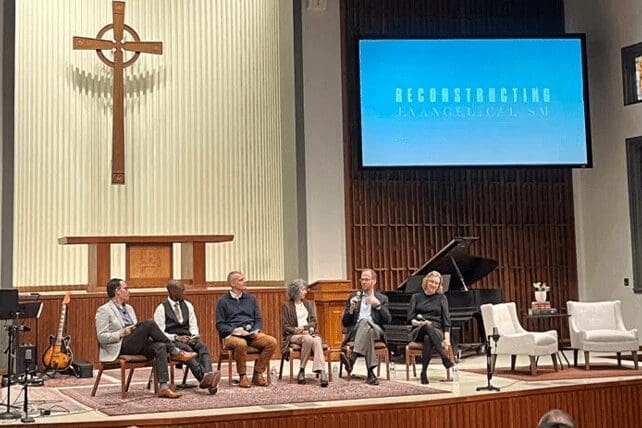OAK PARK, Ill. (RNS) — A conference about the future of the nation’s largest religious tradition began with a bit of honesty. “Nobody knows exactly what an evangelical is,” said Joel Lawrence, executive director of the Center for Pastor Theologians, at the opening of the Reconstructing Evangelicalism conference Monday (Oct. 24).
The conference, which drew about 400 pastors and other church leaders to Calvary Memorial Church in the Chicago suburbs, was inspired by a recent trend among evangelicals and other Protestants to “deconstruct” the faith they grew up with — examining core beliefs and often rejecting the conservative politics, sexism and racial divides evangelicalism has come to be known for.
The question “What is an evangelical?” led to a spirited, thoughtful and sometimes pointed conversation during the conference’s opening panel about the movement’s flaws and how to mend them.
Doug Sweeney, dean of Beeson Divinity School in Birmingham, Alabama, admitted that for much of the American public, the word evangelical is synonymous with MAGA-style politics. “That would not be one of my favorite characteristics,” said Sweeney, who argued that “evangelical” should be tied more to theology than politics.
Historian Kristin Kobes Du Mez, who gave a plenary address Monday evening, defined evangelicalism as a political and consumer culture. She said she has long wondered if the more important thing to ask is, “Who is not an evangelical?”
“Who gets to decide that?” she asked.

Joel Lawrence. RNS photo by Bob Smietana
Elizabeth Conde-Frazier, academic dean of Esperanza College in Philadelphia, said the theological gatekeeping among evangelicals is often “quite ruthless.” Evangelical Christians from Latin America or other parts of the church outside the United States, she said, are largely ignored by American evangelical pastors.
“Why don’t you know their names?” she asked the pastors at the conference. “Why don’t you quote them in your sermons?”
Conde-Frazier argued that any reconstruction of evangelicalism must include a more robust understanding of human sinfulness. While evangelicals often focus on personal sin, they tend to miss the way that power can be misused by sinful church leaders or movements.
“Sin turns into a monster when you have power,” she said.
Malcolm Foley, who directs the Black church studies program at Truett Theological Seminary in Waco, Texas, advocated for an activist form of evangelicalism, one that combines evangelism with social action. “That is the only evangelicalism that I think is worthy of talking about,” he said.
At the same time, Foley was skeptical that the word “evangelical” could be saved or reconstructed.

